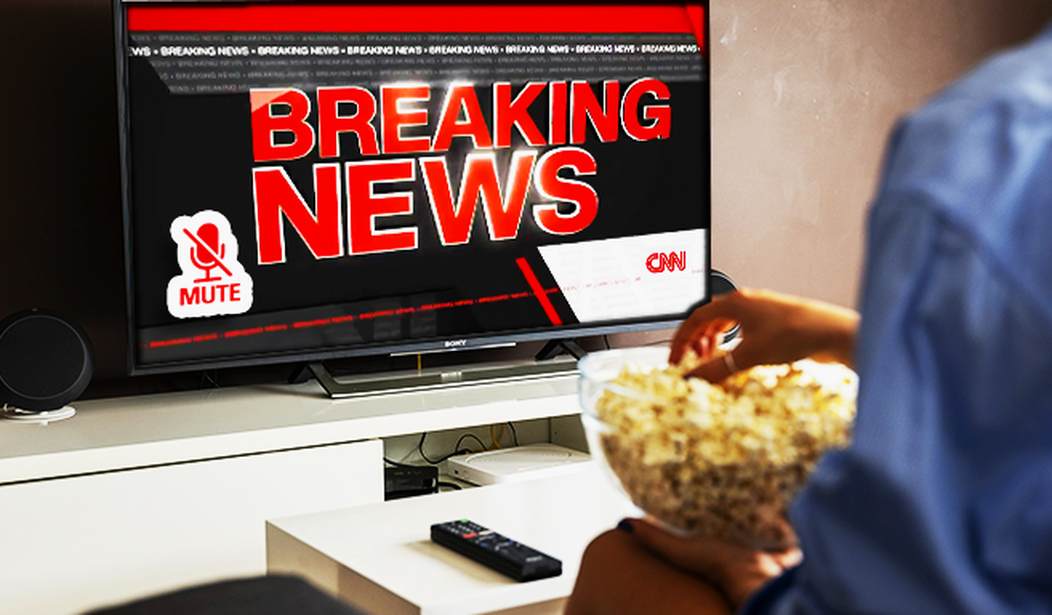Whenever you set up a liberal journalist or panel of liberal journalists to address "the role of the media in the 2024 election," it's going to reflect the questions inside their bubble, so it's mostly about Donald Trump. How does he get away with so much? How does he gain advantage from 91 felony indictments? Can we cover his speeches live? Do we quote his social media posts?
People on the Left don't believe in fairness or balance or giving both parties a chance to speak. They believe they are democracy and Republicans are the end of democracy. They will save the planet from climate catastrophe, and the Republicans are climate deniers. They are the ones who believe in diversity and inclusion -- but they won't include any Republicans, unless they provide that Liz Cheney echo of your biases.
NPR media reporter David Folkenflik moderated a panel for something called the "News Literacy Project," which clearly signaled they are aligned with the liberal media, since their guests on an Election 2024 panel were the alphabet of networks: ABC's Mary Bruce, CBS's Major Garrett, NBC's Kristen Welker and PBS's Geoff Bennett.
Folkenflik shared one often-shared leftist theory from New York University professor Jay Rosen: Focus on "the stakes, not the odds." Don't cover the horse race and obsess over polls; warn people that reelecting Trump is an epic disaster. It's the argument we have witnessed for eight years now. "Fair and balanced" is like favoring "dead and buried." A journalist can't "normalize" Trump, can't let him speak live on camera. It's like allowing a deadly virus to infect democracy.
That goes for Trump-friendly Republicans as well. Folkenflik asked Welker about leftists who were furious that she didn't push back on Rep. Elise Stefanik (R-N.Y.) when she described Jan. 6 prisoners as "hostages." Welker said she would probably act differently in retrospect, but she likes to let guests "finish their thoughts." That's not what she practiced in her Trump interview.
Recommended
Then Folkenflik "balanced" it by asking Garrett about George Stephanopoulos asking Sen. J.D. Vance (R-Ohio) if a president can defy Supreme Court rulings. Folkenflik mischaracterized the Vance answer, and Stephanopoulos cut Vance off, saying, "You've made it very clear you believe the president can defy the Supreme Court."
Garrett sided with the Democrat hack: "I'm not gonna flyspeck George Stephanopoulos here or anywhere else. George has earned his reputation as one of the best interlocutors in live television ... full stop." Conservatives never have a point about being mistreated.
Folkenflik briefly touched on pro-Trump voters and whether the "mainstream" media can educate them, but later Garrett was blunt: "We can't service those who have decided to opt out. And if you watch Newsmax, you've opted out. You have said ... 'mainstream media, you don't meet my needs.'"
The NPR reporter pushed back, that maybe they'll get contrasting information from social media. Garrett dismissed it: "If you're a dedicated Newsmax watcher, you're not going to be someone even inclined -- even if something comes in the side door of your feed, through Instagram or Facebook or X or TikTok, and it says 'CBS' on it, you have already decided, 'probably not.'"
What's fascinating is his lack of introspection, that he's saying, "If something comes to me from Newsmax, I've already decided, 'probably not.'"
Liberals think the conservatives are the ones who can't process an opposing opinion and consider whether it's legitimate. We're automatically illegitimate, and argue in bad faith. Liberals organize unanimous panel discussions, in front of unanimous audiences who think conservatives would "benefit" from more liberal bias. The liberal bubble is real, and it's thick.
Tim Graham is director of media analysis at the Media Research Center and executive editor of the blog NewsBusters.org. To find out more about Tim Graham and read features by other Creators Syndicate writers and cartoonists, visit the Creators Syndicate website at www.creators.com.

























Join the conversation as a VIP Member